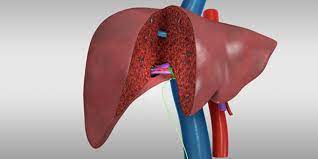People who undergo a liver transplant must visit the doctor regularly to ensure that the new liver is functioning properly. You might have to take regular blood tests to look for signs of “organ rejection” and numerous other issues that can easily damage the new liver. But what’s it like to live with a transplanted liver? Let’s find out through this guest post.
What is Organ Rejection, and How to Prevent It?
Organ rejection occurs when the immune system views the “transplanted liver” as foreign and tries to eliminate it. There is a high chance that you will experience organ rejection within the 1st 3 to 6 months after the liver transplant.
If you want the body to stop rejecting the newly transplanted liver, you have to take medicines known as immunosuppressants. These medications will treat and prevent organ rejection by lessening the immune system’s response to the new liver.
You might have to take multiple immunosuppressants for the rest of your life. Rejection can occur at any time, especially when these medicines cannot properly control the immune system’s response.
If the transplanted liver fails to function properly, the transplant team will decide whether or not you will need another transplant.
How to Care for the New Liver?
According to the physicians from the best Liver Transplant Hospital, there are several ways through which you can take care of a new liver.
- Take the medicines according to how your physician has instructed.
- Speak with the doctor before taking other medications, such as over-the-counter and prescription medicines, and vitamins.
- Keep all the scheduled blood tests and medical appointments.
- Notify your physician when you’re sick
- Keep your distance from individuals who are sick to avoid infections.
- Learn to recognize the signs or symptoms of organ rejection
- Undergo cancer screenings
- Stay well-updated with all the vaccinations. Make sure not to use the “LIVE” vaccines.
Speak with the physician after and before the liver transplant about the outcomes and risks of pregnancy and the usage of contraceptives.
Besides these points, you also need to recognize the signs of infections, and these signs are:
- Vomiting
- Fever
- Cough
- Sore Throat
- Chills
- Diarrhea
- A Stuffy Nose
If you’re experiencing any of these symptoms, speak with the doctor immediately. You must also make healthy choices so that you can protect yourself. Some of these are:
- Don’t smoke, consume healthy products, and do workouts.
- Don’t drink alcoholic beverages or utilize alcohol in your cooking, especially when you have a history of alcohol use disorder.
- Avoid keeping pets, such as birds, reptiles, and rodents.
- Keep yourself protected from soil exposure by wearing long-sleeve shirts, shoes, long pants, and socks.
- Make sure to protect yourself from organisms that can transmit diseases, like mosquitoes and ticks. To protect yourself, you can use the following:
- Insect repellent
- Wearing long-sleeve shirts, socks, shoes, and long pants
- Not going outside when organisms are pretty much active, such as dusk and dawn.
- When you’re thinking of traveling, especially to developing nations, speak with the transplant team 2 months before you leave. Doing so can lessen travel-related risks.
Things to Eat After Liver Transplant
Experts from the best Liver Transplant Hospital say that patients must consume a well-balanced and healthy diet after the transplant. Doing so will help them recover quickly and stay healthy. A nutritionist or a dietitian can provide you with a healthy eating plan which will meet all your diet nutrition needs.
Things You Should Avoid Eating After Liver Transplant
Grapefruit juice and grapefruit can affect the functions of some of the immunosuppressants. To prevent this, you should avoid consuming grapefruit juice and grapefruits.
When you have a history of alcohol disorder, do not consume alcoholic drinks or utilize alcohol when cooking. There are several other things that you must avoid consuming, and they are:
- Water from rivers and lakes
- Undercooked or raw food products like meat, egg, pork, poultry, fish, etc.
- Unpasteurized milk products.
- The nutritionist or dietitian will also suggest you limit the intake of sugar, salt, fat, and cholesterol.
Conclusion
A liver transplant is a procedure where a new liver is transplanted in place of the damaged or diseased liver. Specialized surgeons conduct the transplant, and you must follow a strict and healthy diet once the transplant is over. Make sure to eat, work out, take your medications on time, visit the physician for check-ups, and undergo blood tests. Be sure to speak with the physician if you’re experiencing any issues or problems after the transplant. They will provide you with the help you need without delay.
http://www.imgpic.org/immediate-steps-to-be-taken-after-knee-replacement-surgery/
Apart from that if you want to know about Send Diwali gift delivery then please visit our Health category








